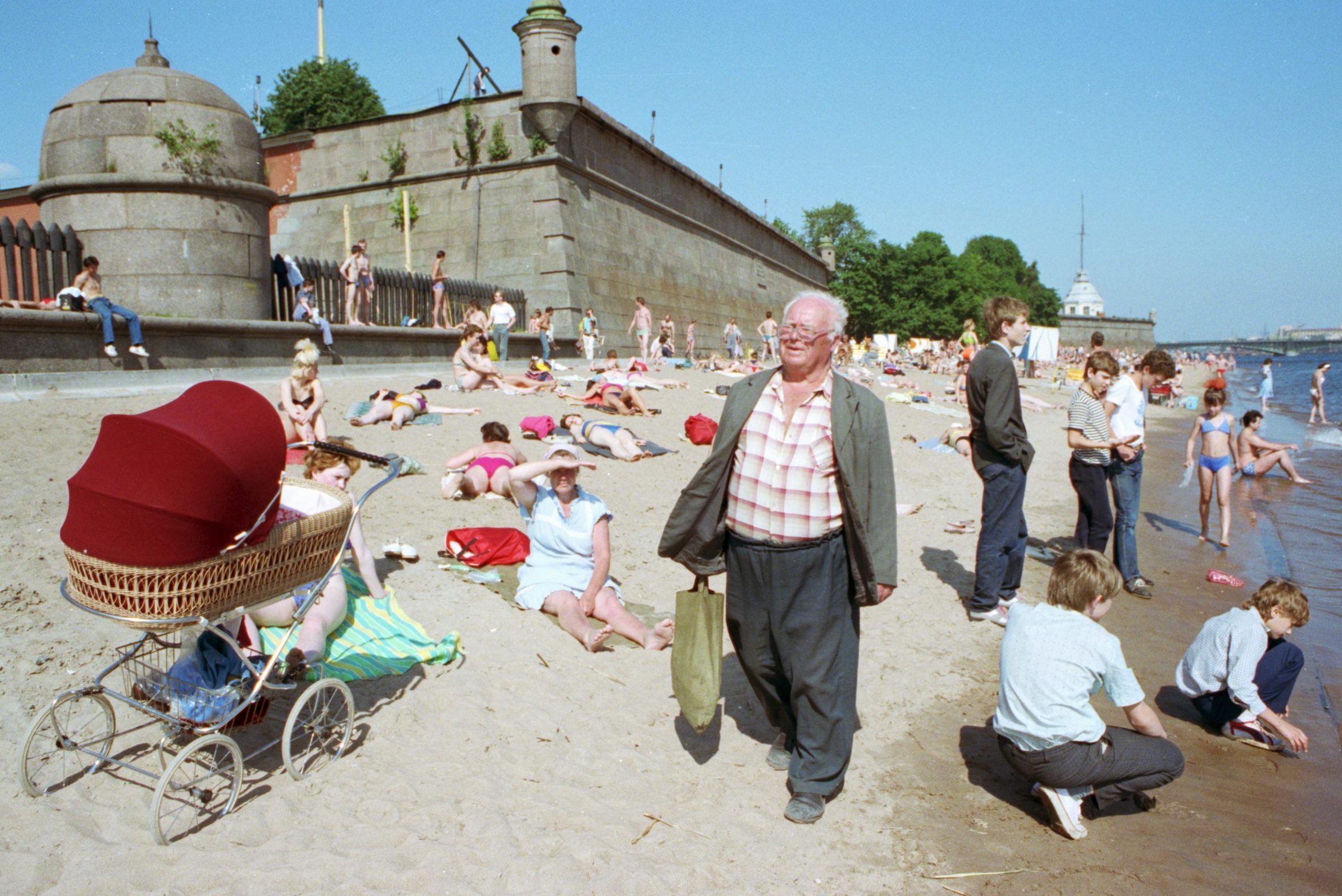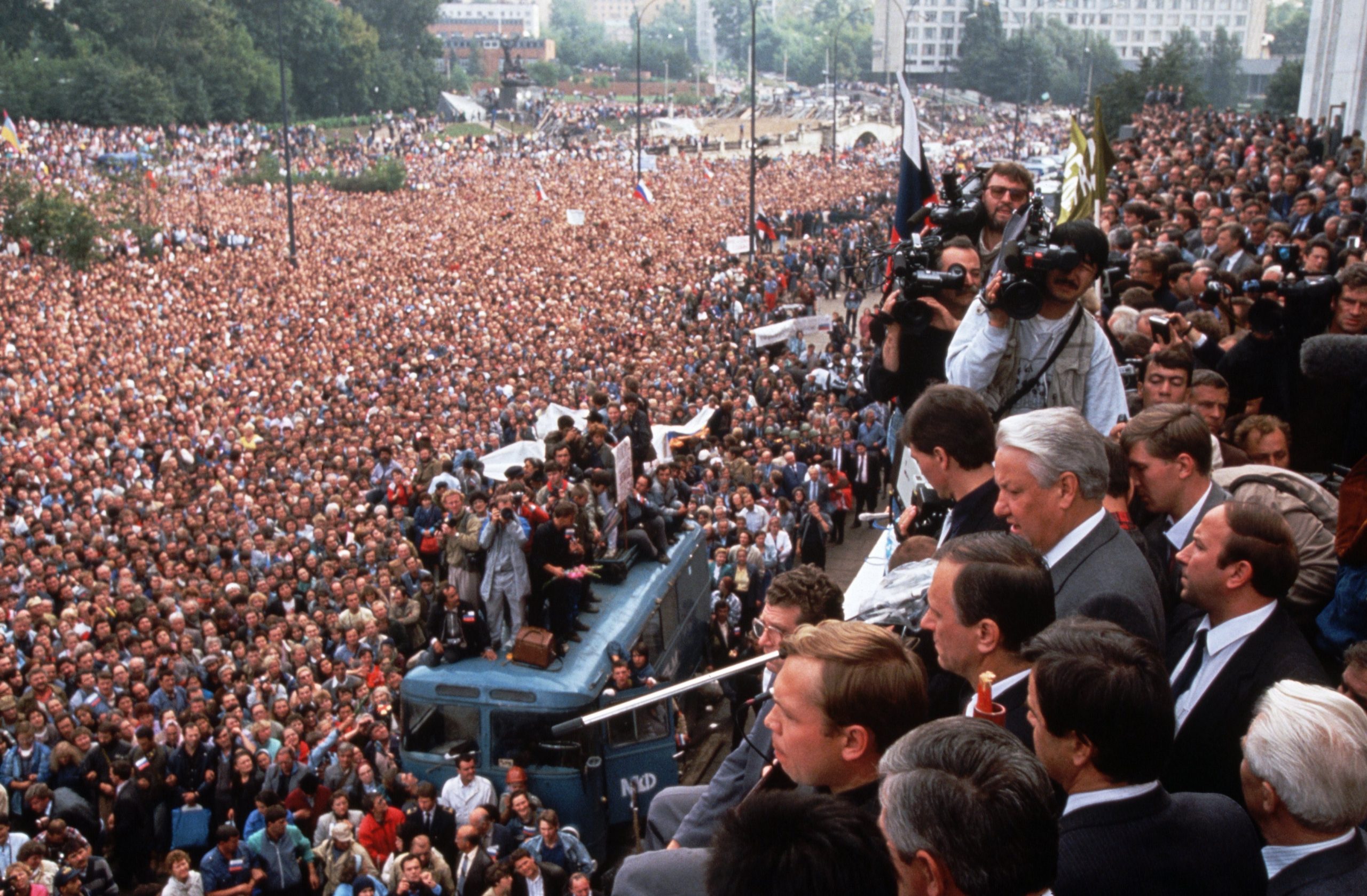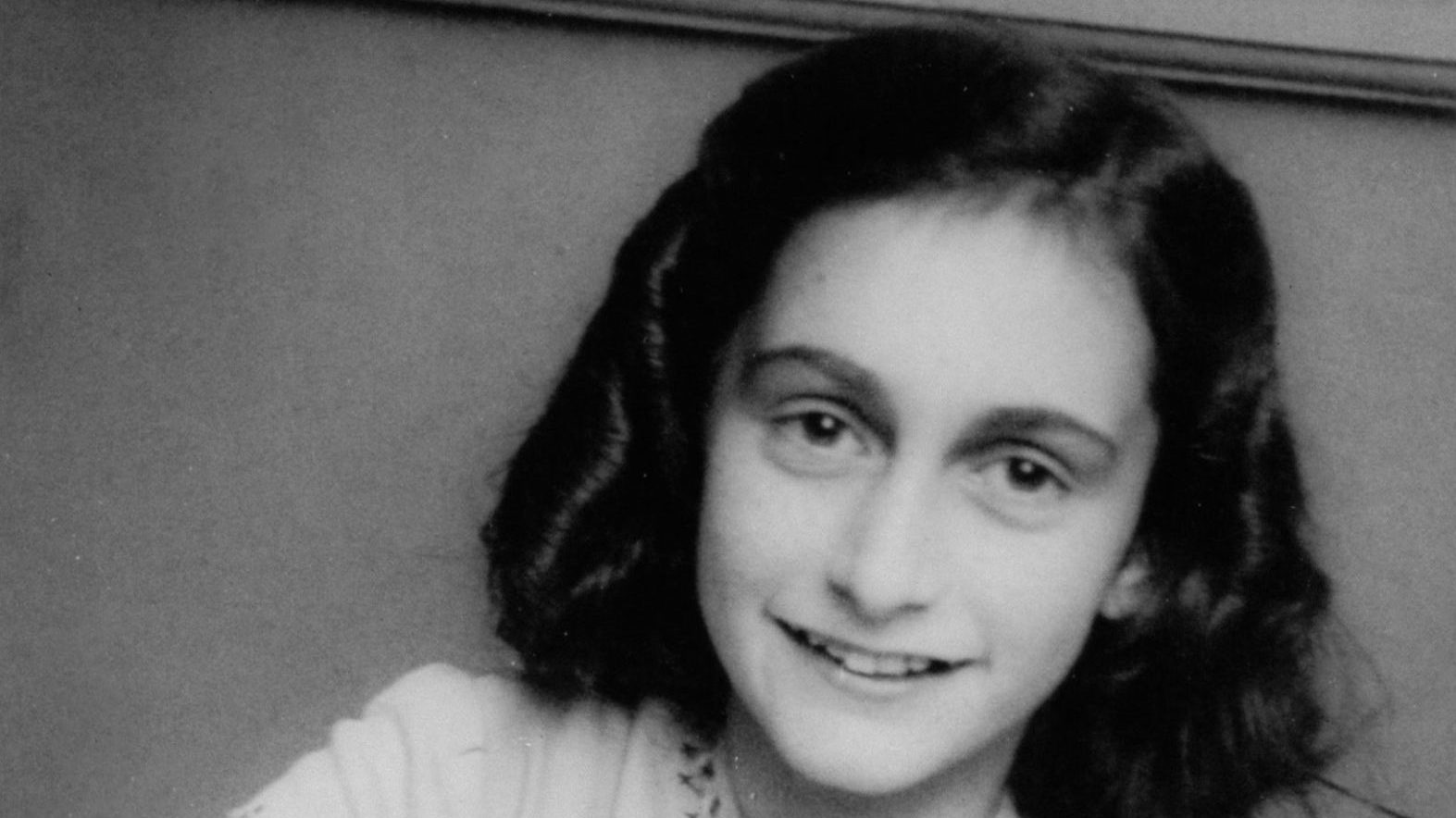What a way to die: gunned down in the dead of night by killers almost certainly despatched by the failing superpower your tiny nation had defied. In death, your bullet-riddled corpse – hastily covered – was screened the world over.
In the UK, broadcasters would baulk at showing the full bloody aftermath of the attack. There were no such sensitivities in Russia, and the unedited pictures were sent to the TV centre in Moscow before being prepared for transmission in later news bulletins.
It was late July, 1991. I was in the Soviet Union on my first international assignment. For me, it was the start of a career reporting on global events. For the USSR, the end was near.
The pictures I saw that July afternoon were of the aftermath of an attack on a Lithuanian border post. The previous year, Lithuania had declared independence from the Soviet Union, but Moscow had not recognised this. The very existence of the border post was a challenge to Moscow’s authority. The guards paid with their lives for this boldness.
Perhaps in a foretaste of the Kremlin’s later post-Soviet dealing with its former subjects, Moscow sought to deny any knowledge of, or involvement in, the killings. The official Soviet response at the time held that ‘terrorists’ were to blame.
What mattered, in addition to the bloodshed, was the timing. The attack happened on the eve of George Bush Snr’s arrival in Moscow for a meeting with Mikhail Gorbachev. The main subject of their talks was arms control.
It would be the last ever US-Soviet summit. By the end of the year, the Soviet Union was dead. Lithuania, Russia, and 13 other component republics went their own ways.
That July, though, the red Soviet flag still flew over the Kremlin, a short distance from the Rossiya Hotel (a monstrous masterpiece of Soviet-era architecture) where the media were housed for the summit. Cracks had already appeared in the façade of Marxism-Leninism.
The ground floor of the hotel housed a branch of the American ice cream chain, Baskin Robbins. It only accepted payment in US dollars – no use if you were paid in the roubles that still had Lenin’s head on them.
As a foreign journalist, I did have dollars but Moscow didn’t offer much to spend them on. Restaurants were rare for a city of that size, and often fully booked. Shops were shut or sparsely stocked. A Russian friend at university then recently shared the story of his lecture theatre emptying – lecturer included – because someone had found out there had been a rare delivery of sour cream (a staple of Russian cuisine) at a shop across town. Many Muscovites of working age relied on pensioner parents to stand in food queues for them.
Some queues collapsed into chaos. At the beer stand near a block of flats that was home to foreign news bureaux, drink-fuelled scuffles in the late afternoon were a sign that the pumps were close to running dry.
I stayed in ‘October’ Hotel, named for the great socialist revolution of 1917. It had a restaurant, which closed early and often ran out of food before it did so. What a place the October was, though. Heavy, dark-coloured furniture; rooms and corridors where the air was thick with the polish used to shine the parquet floors.
Everything seemed a relic. On each floor there was an elderly lady, the dezhurnaya – literally ‘the woman on duty’, from the French ‘de jour’ – who could offer information, water for tea, and who kept the keys. In reality, her main job was to keep an eye on guests – especially foreigners like me.
Moscow then, as now, is dominated by wide boulevards – built in Soviet times perhaps deliberately large to make the individual feel small. Quiet streets, like the one where my hotel was, were a welcome relief – especially the lanes around the corner from the Arbat, Moscow’s most famous pedestrian street, then home to a growing number of souvenir sellers who were the vanguard of private enterprise.
More remarkable, though, were the stirrings of political satire. Soviet society, with curbs on press freedom that veered between harsh and very harsh, had been a place where publicly mocking leaders was barely possible. In consequence, an entire culture of private jokes at the expense of the country’s communist rulers acted as a pressure valve.
That summer, as Soviet power waned, the jokers came out in public; buskers entertaining strolling evening crowds who gathered to laugh, and occasionally exchange glances as if to ask, ‘will they get away with saying that?’
It was amid this atmosphere that a group of hardline communists decided that they had had enough. As you know, Gorbachev was deposed in a coup, returned to power and was deposed again, this time peacefully.
He was replaced by Boris Yeltsin, who stood atop a tank during the coup; a little over two years later, Yeltsin would send tanks to the same spot to fire on his rivals as he sought to consolidate his own power.
Violence had entered post-Soviet politics. It has never gone away in the years since then.
By the end of 1994, with shades of Lithuania three years earlier, Yeltsin was launching a military campaign to bring the rebellious southern region of Chechnya – seeking to separate from the Russian Federation – to heel.
Alongside political battles and armed conflicts, there was economic chaos. The basic tenets of Soviet socialism – like the idea that under capitalism everyone would be poor save a privileged class of oligarchs – pretty much came true.
Things improved in the early 2000s as soaring oil prices brought cash flowing in and bolstered the position of Vladimir Putin, but most suffered lean years before that.
Three decades on, this is not the Russia many of us westerners expected to see in the wake of the summer of 1991. The funny songs at the expense of leaders are gone.
In the Yeltsin years, there was even a version of Spitting Image. A Russian colleague told me once that his father had recorded every episode on video. My colleague asked why. “We’ve never been allowed TV like this before in Russia, son, and it won’t last long,” came the reply.
Try making fun of Putin in the streets of Moscow today and see what happens.



